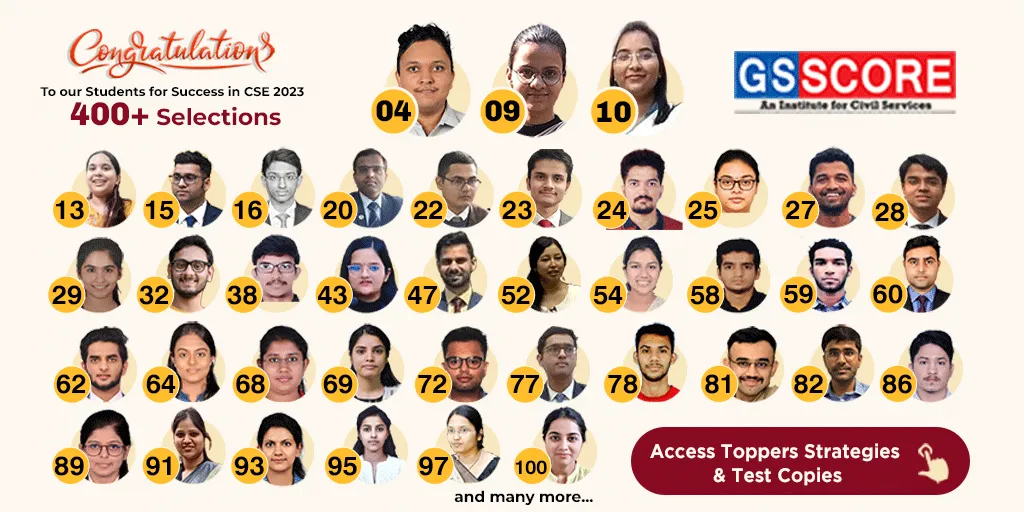A Recipe for Reform
Context
The future of India is linked to police reforms. If the country is to progress and emerge as a great power, there is no alternative to radical reforms in the police.
Background
- Sixteen years ago, on September 22, 2006, the Supreme Court gave a landmark judgment on police reforms. It raised great expectations. The police fraternity has since been observing September 22 as ‘Police Reforms Day’.
- There has been some half-hearted compliance with the judicial directions but generally, the states have shown “indifference to the issue of police reforms”.
About
Issues Concerning Police Forces:
- Colonial Legacy: The Police Act of 1861, which governs substantially the functioning of police, is a symbol of colonial rule. It was promulgated to have police that would be “politically useful”. This meant that the police were to always comply with those in power.
- Accountability to the Political Executives: The Second Administrative Reforms Commission (ARC-2007) has noted that political control has been abused in the past by the political executive to unduly influence police personnel, and have them serve personal or political interests.
- Psychological Pressure: While improvements in pay scale and promotions are necessary aspects of police reforms, little has been spoken about reforms needed at the psychological level.
- In the Indian police force, the lower ranks of police personnel are often verbally abused by their superiors or they work in inhuman conditions.
- This non-harmonious work environment ultimately affects their relationship with the public.
- Public Perception: The Second ARC has noted that police-public relations are in an unsatisfactory State because people view the police as corrupt, inefficient, politically partisan, and unresponsive.
- Further, citizens in general fear going to a police station or dealing with the lower ranks of the police force.
- Overburdened & underpaid: There is no denying in the fact that the police force is overburdened and underpaid.
- Lack of manpower: India had (in 2017) 131 police officers per 1,00,000 people; that is lower than the sanctioned number (181) and much lower than the number recommended by the UN (222).
- More workload, less efficiency: Clearly, “an average policeman ends up having an enormous workload and long working hours, which negatively affects his efficiency and performance”.
- Dying motivation: Add to this poor working conditions and compensation, and it is, in fact, creditable that our police are as motivated as they are.
- Medieval recruitment process: The Indian policing system also suffers from its century-old recruitment process. The recruitment process of police personnel, especially from the lowest constabulary level to the Sub-Inspector level, is medieval.
- No growth: 86% of the police force are constables, who have no growth path other than a single promotion (to Head Constable) before they retire.
- Obsolete and outdated weapons: Similarly, when it comes to weaponry, police machinery is still using outdated weapons. The Comptroller and Auditor General (CAG) in its report also highlighted that the force continues to depend on outdated and unserviceable weapons.
- Police mobility: Police mobility is another issue, which has been hampered by the shortage of police vehicles.
- Poor communication network: Another problematic area relates to communication networks. In an era of ICT, the police system is still struggling to get a proper communication network.
- Lack of funding: Police infrastructure is perennially underfunded, and, with some notable exceptions, there are few efforts to build public/police relations.
Committees / Commission on Police Reforms Various Committees/Commissions in the past have made a number of important recommendations regarding police reforms. Notable amongst these are those made by:
- the National Police Commission (1978-82)
- the Padmanabhaiah Committee on the restructuring of Police (2000)
- the Malimath Committee on reforms in criminal justice System (2002-03)
- Ribero Committee (1998)
Supreme Court’s view on the issue
- The Supreme Court has observed that there is a need to have an independent complaints authority to inquire into complaints of police misconduct.
- The Model Police Act, 2006 requires each state to set up an authority (akin to the Civilian Complaint Review Board in New York City) with five members:
- a retired High Court Judge, a retired police officer of the rank of DGP from another state cadre
- a retired officer with public administration experience from another state
- a civil society member
- A person with at least 10 years of experience as a judicial officer or lawyer or legal academic.
The panacea to the problems
- Addressing prejudice: Though addressing prejudice is a long and painstaking road—each of us needs to confront our own prejudices, address them as best we can, and continuously put the word out in our families and wherever we have any influence that there is really no fundamental difference between people, and that we are all citizens and one under the law. This effort can never stop.
- Strengthening institutions: In parallel, the government needs to work on the institutional side. The Model Police Act of 2006 was circulated to all the states; that very year, 17 states passed new laws or amended their existing laws in light of this new model law. There have been further evolutions since then, but many of its fundamental principles remain unfulfilled.
- Specialized team: The police need to have specialized teams for each type of activity.
- Important areas: The area which needs urgent attention include;
- police accountability
- the need to separate law and order from investigation
- poor working conditions and an overburdened police force
- constabulary related issues
- police infrastructure
- public-police relations





